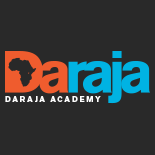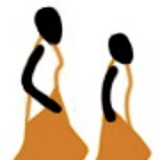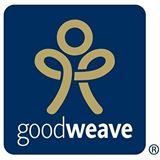MAIA
This organization was formerly known as Starfish.
RefuSHE
This organization was formerly known as Heshima Kenya.
Fistula Foundation
Also funded in 2004 ($345) and 2005 ($56)
African Women Rising
A Note About African Women Rising’s video:
Our Featured Grantees go to extraordinary lengths to get us a grantee video under tight deadlines and with limited resources. They understand that the video is an important way in which they can communicate with DFW members about their organization and their projects. African Women Rising (AWR) works in northern Uganda with refugee populations on permagardens, education for women and girls, and microfinance. In the U.S., AWR is headquartered in Santa Barbara, CA. Earlier this year they were hit with mandatory evacuations because of wildfires. This was followed by multiple evacuations on account of rains and mudslides. Under these circumstances, AWR staff did their best to get their video to us. In the video the audio is a little hard to hear in one particular section. The conversation is transcribed here.
Mercado Global
How DFW’s grant will be used
- Develop and strengthen community-based training curriculum in partnership with leading global health experts to make topics relevant and impactful for rural indigenous women who fall outside of other health education efforts.
- Empower women to adopt healthy practices in their families and communities, leading to less illness, decreased mortality rates, and increased well-being for their families.
- Increase the number of partner artisans taking leadership roles in their co-ops and communities. Since partnering with Mercado Global, 44% of artisans report holding a leadership position within their communities, such as holding office in their co-ops and participating on school boards.
- Bring in new additional trainer to lead the expansion of the Power to Change Program, reaching new and current groups with updated content and stronger curriculum that addresses the evolving needs of women artisans in taking on more challenging work.
Educate!
How DFW’s grant will be used
- Improved Livelihoods Training (increased income and employment)
- Increased Business and Job Creation
- Improved Community Participation; and
- Improved 21st Century and Business/Employability Skills
Visions Global Empowerment
How DFW’s grant will be used
- Livelihoods Development: To provide vital vocational training opportunities and livelihoods development assistance to 40 deaf women in Addis Ababa (20) and Bahir Dar (20) with the goal of ensuring each has a job or trade by the end of the program that promotes independent living and economic independence.
- Mentoring & Support: To provide regular mentoring support, counseling, life skills training, and formal Ethiopian Sign Language training for all participants.
- Human Rights Trainings: To conduct two training programs on human rights (including women’s rights and disabled persons rights), advocacy, and community organizing in partnership with local organizations.
- Advocacy Materials: To create printed (including posters, newsletters, brochures, etc.) and multimedia (including short films) public awareness materials about deafness and deaf-related issues.
- Community Education: To conduct regular (at least 12) community education and awareness-raising trainings for teachers, parents, deaf individuals and their families, physicians/medical students/health workers, and general community members about deafness, human rights, and deaf-related issues.
- Capacity Building: Through all of the above activities, to help build the capacity of local women’s and disabled persons organizations actively engaged in serving, organizing, and empowering deaf women and girls.
Daraja Educational Fund
What DFW’s grant will support
 The Daraja Academy Grassroots Girls Program is an extension of the Women of Integrity, Strength and Hope (WISH) curriculum. Daraja Academy, in conjunction with Groots International of Kenya, has launched a small pilot program to teach girls community grassroots leadership skills. The students have requested the program include the entire student body. The objectives of the program are to teach students leadership skills and to show them how to employ those leadership skills in real life context through the development of grassroots organizations that will benefit their communities and their country.
The Daraja Academy Grassroots Girls Program is an extension of the Women of Integrity, Strength and Hope (WISH) curriculum. Daraja Academy, in conjunction with Groots International of Kenya, has launched a small pilot program to teach girls community grassroots leadership skills. The students have requested the program include the entire student body. The objectives of the program are to teach students leadership skills and to show them how to employ those leadership skills in real life context through the development of grassroots organizations that will benefit their communities and their country.
The DFW grant will support 104 girls in the leadership program by covering staff salaries, training, supplies for income-generating activities, field trip expenses (transportation, food, water), office supplies, curriculum development, transportation to partnering organizations, and incentives for service partners.
AfricAid
How DFW’s grant will be used
 Specific program objectives are:
Specific program objectives are:
- To add 210-281 new girls to the Kisa Program in the 2014 school year.
- To ensure a graduation rate is over 90 percent – benchmarked to the Tanzanian average of 5%.
- To increase partnering schools from nine currently in Arusha to 13 by the with installation of computer labs in the partnering schools.
- To have 130 scholars graduating mentor 15-20 girls each, thereby reaching an additional 1,950-2,600 girls during the Leadership Immersion part of the program.
GoodWeave International
How DFW’s grant will be used
 DFW’s grant will directly reach 450 girls.
DFW’s grant will directly reach 450 girls.
- A portion of the salaries for Inspectors conducting the home based inspections to identify girls working on the looms at home.
- A portion of the salary for the Social Worker who will work with families to assist in the development of an education plan for the girls and connecting them to counseling or education services as needed.
- Program services and supplies for Preschool Education Program for 50 children whose mothers are employed in the weaving industry
Notable
 GoodWeave was founded by Kailash Satyarthi, the 2014 co-recipient of the Nobel Prize for Peace. Satyarthi was an engineering student when he began to fight against child trafficking. Realizing that a root cause of the crisis was consumer-based, he set out to establish a certification process to raise awareness of forced child labor and to incentivize manufacturers. Through this effort, GoodWeave was born in the mid-1990s. Read more about Satyarthi and the beginnings of GoodWeave.
GoodWeave was founded by Kailash Satyarthi, the 2014 co-recipient of the Nobel Prize for Peace. Satyarthi was an engineering student when he began to fight against child trafficking. Realizing that a root cause of the crisis was consumer-based, he set out to establish a certification process to raise awareness of forced child labor and to incentivize manufacturers. Through this effort, GoodWeave was born in the mid-1990s. Read more about Satyarthi and the beginnings of GoodWeave.
Thirteen Threads: Featured (2010), Sustained (2012-2014)
DFW travel to 13 Threads
Dining for Women members visited 13 Threads during a 2013 trip to Guatemala. Read the trip diary.
Nurturing Minds
Follow Up from Nurturing Minds
The Sega Girls School was able to reach its goal of fully implementing a large-scale poultry farm on campus. Two large poultry pens, including a storeroom, farm attendant’s dwelling, water supply and solar electricity (to support a vaccine fridge) were constructed. The farm manager, farm attendant, and consultant veterinarian were hired; and all equipment (feeders, drinkers, charcoal burners for warmth, etc.) purchased. The first order of 1,000 chicks arrived in April followed by another batch in several weeks later.
The Sega students Form II/9th grade focus on the poultry business (occasionally mixing with Form III’s support), as each grade has its own concentration. It was a very busy and successful year, surpassing the goals for egg productivity and sales. As the school reached the first year end of poultry farming, it has sold over 50,000 eggs (producing over 1000 eggs weekly), in addition to supplying the needs of the school community.
Shining Hope for Communities: Featured (2011), Sustained (2015-2017)
Program Title:
Program Summary:
Program Objectives:
Direct Reach:
Indirect Reach:
Grant pays for:
Why we love this project:
Anchal: Featured (2012), Sustained (2016-2018)
Project Updates:
June 2013
Executive Director Colleen Clines sent a letter to Dining for Women thanking us for our support and telling of the impact our funding will have. It is a moving and personal look inside how our efforts make a difference. Read the letter.
Anchal has been very much connected to Dining for Women recently. Colleen was kind enough to be a part of our 10th anniversary event in June. She note only presented a program on Anchal and its impact, but she and her mom, Elizabeth, participated in our marketplace. They sold out several of the inventory before lunch.
Dining for Women is not the only good news on the Anchal front. During her presentation at the conference, Colleen announced a new partnership with Urban Outfitters. For the program – called Urban Renewal – Anchal artisans will create quilted materials for vintage dress and jacket designs to be sold through all the Urban Outfitters outlets.
This post on the Anchal blog is full of stories and photos from a recent workshop. Very inspiring.
Village Enterprise: Featured (2006), Sustained (2013-2015)
DFW Donations: 2006-$4,305; 2007-$6,313; 2011-$38,893
Dining for Women’s donations will provide:
- Supply startup capital to 145 qualified women-led entrepreneur groups (25 people supported per business equals over 3,600 lives improved) in Uganda
- Provide formal business training necessary to launch successful enterprises, increasing 725 microentrepreneurs’ business skills and knowledge, as well as their confidence
- Provide long-term mentoring for at least a year to ensure business success
- Strengthen women’s ability to work together by providing training in conflict resolution, leadership skills, and community building
- Connect new business owners with each other through the a “cohort” training model, which facilitates peer learning and networking between women entrepreneurs
